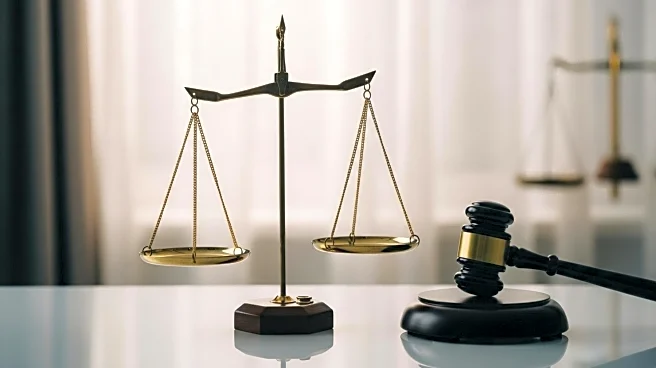What is the story about?
What's Happening?
Pomerantz LLP has filed a class action lawsuit against Tronox Holdings Plc, alleging securities fraud and other unlawful business practices. The lawsuit follows Tronox's announcement of a significant reduction in sales of its TiO2 products for the second quarter of fiscal 2025, attributed to a softer coatings season and increased competition. Consequently, Tronox revised its 2025 financial outlook, lowering its full-year revenue guidance and reducing its dividend by 60%. This news led to a sharp decline in Tronox's stock price, which fell by 37.94% to close at $3.19 per share on July 31, 2025.
Why It's Important?
The class action lawsuit against Tronox Holdings Plc highlights the potential legal and financial repercussions for companies that fail to meet investor expectations and disclose accurate business information. The significant drop in Tronox's stock price underscores the impact of financial mismanagement and competitive pressures on investor confidence. This case could set a precedent for similar lawsuits in the industry, emphasizing the importance of transparency and accountability in corporate governance. Investors who suffered losses may seek compensation, and the outcome of this lawsuit could influence Tronox's future business strategies and investor relations.
What's Next?
Investors who purchased Tronox securities during the class period have until November 3, 2025, to request the court to appoint them as Lead Plaintiff. The lawsuit will proceed through the legal system, potentially leading to settlements or judgments that could affect Tronox's financial standing and market reputation. Stakeholders, including investors and industry analysts, will closely monitor the developments of this case, as it may impact Tronox's operational decisions and strategic planning. The company may need to address the allegations and implement measures to restore investor trust and stabilize its market position.
Beyond the Headlines
The lawsuit against Tronox Holdings Plc raises broader questions about corporate ethics and the responsibilities of company executives in maintaining transparent communication with shareholders. It highlights the legal risks associated with inadequate disclosure of financial challenges and competitive dynamics. This case may prompt other companies to reassess their disclosure practices and strengthen their compliance frameworks to avoid similar legal actions. Additionally, it underscores the role of law firms like Pomerantz LLP in advocating for investor rights and holding corporations accountable for their actions.

















